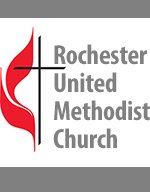John 6:1-21
After this Jesus went to the other side of the Sea of Galilee, also called the Sea of Tiberias. A large crowd kept following him, because they saw the signs that he was doing for the sick.Jesus went up the mountain and sat down there with his disciples. Now the Passover, the festival of the Jews, was near. When he looked up and saw a large crowd coming toward him, Jesus said to Philip, “Where are we to buy bread for these people to eat?” He said this to test him, for he himself knew what he was going to do. Philip answered him, “Six months’ wages would not buy enough bread for each of them to get a little.” One of his disciples, Andrew, Simon Peter’s brother, said to him, “There is a boy here who has five barley loaves and two fish. But what are they among so many people?” Jesus said, “Make the people sit down.” Now there was a great deal of grass in the place; so they sat down, about five thousand in all. Then Jesus took the loaves, and when he had given thanks, he distributed them to those who were seated; so also the fish, as much as they wanted. When they were satisfied, he told his disciples, “Gather up the fragments left over, so that nothing may be lost.” So they gathered them up, and from the fragments of the five barley loaves, left by those who had eaten, they filled twelve baskets. When the people saw the sign that he had done, they began to say, “This is indeed the prophet who is to come into the world.”
When Jesus realized that they were about to come and take him by force to make him king, he withdrew again to the mountain by himself.
When evening came, his disciples went down to the sea, got into a boat, and started across the sea to Capernaum. It was now dark, and Jesus had not yet come to them. The sea became rough because a strong wind was blowing. When they had rowed about three or four miles, they saw Jesus walking on the sea and coming near the boat, and they were terrified. But he said to them, “It is I; do not be afraid.” Then they wanted to take him into the boat, and immediately the boat reached the land toward which they were going.
Some Thoughts on Today’s Reading: John 6:1-21
There is a spirit of fear, anxiety and disbelief in these famous verses from the Gospel of John. What fear? What anxiety? What disbelief?
There is the fear, anxiety and disbelief that the 5,000 people can be fed. But they are. Later, in the boat being tossed about on the sea, the disciples repeat their earlier trifecta of emotions. Even though they have witnessed the miracle of the feeding of the 5,000, the feeling hasn’t stayed very long. Life gets bumpy and fear returns.
It’s like that with us, too. We can experience the Holy Spirit moving within us and all around us, but this can go quickly to something else. The thing we wanted we don’t get. Our ideas are discarded. What we want just doesn’t happen. I am reminded of the old Garth Brook’s song that says: “Some of God’s Greatest Gifts are Unanswered Prayers.” Sometimes, God has something else for us. Are we too set in our wants to see this?
Sometimes, the things we want aren’t what God desires for us. This can be a source of many negative emotions. The converse can be true, and we can be fearful, full of anxiety and even disbelief that the thing we desire is even possible.
At the heart of this is what is at the heart of these passages from John. We must ask ourselves what is it that God desires of us and for us? Are our passions expressed on behalf of our loving God or a deeper and more self-serving need? Do we believe that God can only do so much and then practicality sets in? Feed the 5,000? How is that possible? Still the storm? No way!
Parker Palmer writes about how to discern what God desires for us. He has written a lot about a community-based way of becoming clear about which path to take. This is a Quaker tradition. If we want something, or are unclear about something in our lives, it helps to sit down with several believers who, through loving questions, can help us discern what God might want for us. The process is affirming and involves the commitment of the individual to be open to what is possible and how it might feed ourselves and others in God’s name. Not our own name—but God’s.
The Gospel of John tells a story about what can happen when disciples experience the incarnational God living among us. Can we, too, set aside our fear, anxiety and disbelief and be a part of what he wants for us?
Grace and Peace,
Pastor Pam

Rev. Pam Brokaw pastors both the Rochester and Oakville United Methodist Churches.
She is a graduate of the Seattle University School of Theology and Ministry, where she earned her Masters in Divinity.
